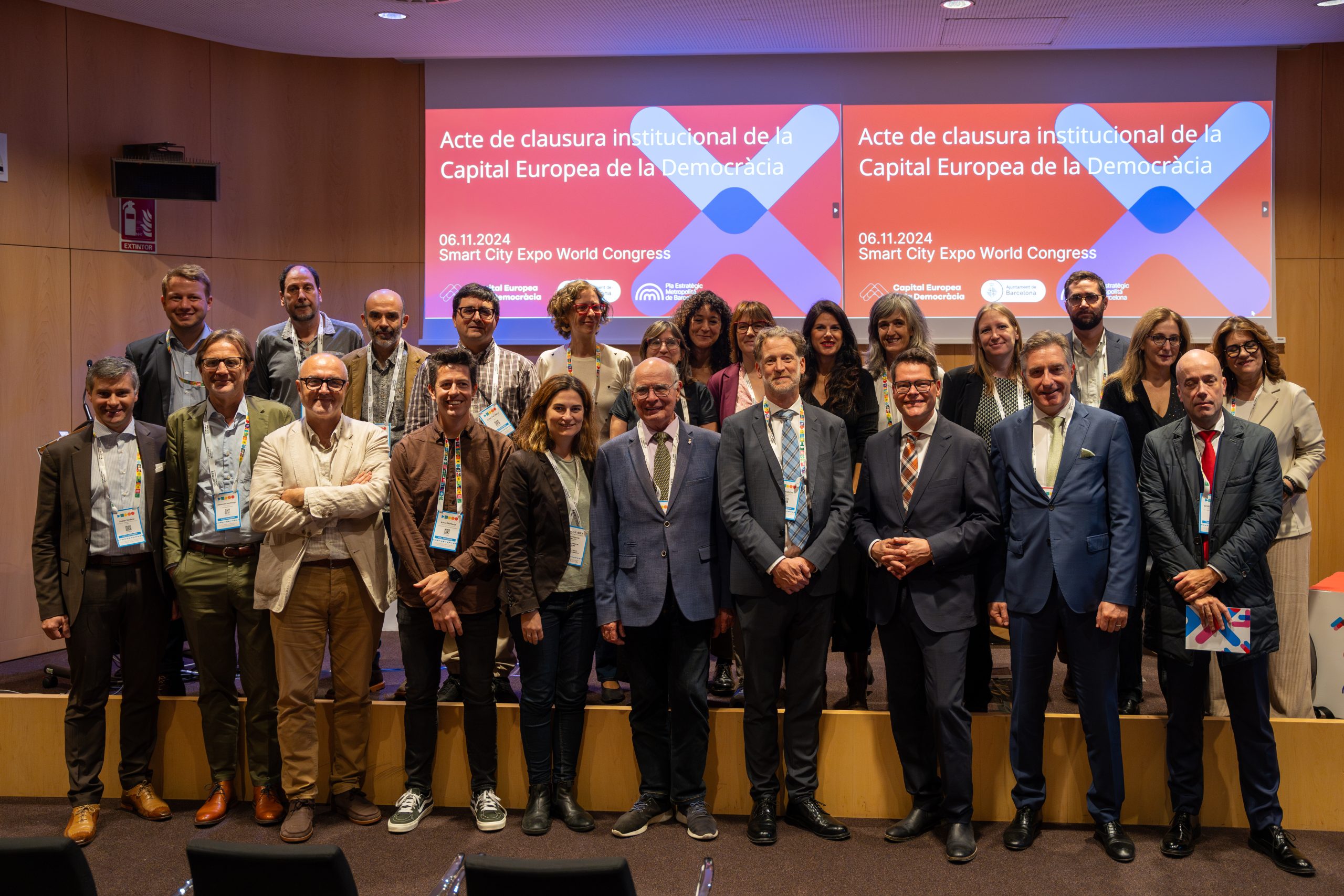We present: The ten finalists chosen by the jury in the category “jobs”
JOBS
(In alphabetical order)
ART2WORK
Wim Embrechts
BELGIUM
Personal development: creating new opportunities for talented young people
ART2WORK develops a series of programmes for young people in Brussels focusing on personal development and economic integration. ART2WORK invites everyone to see things afresh and write their own ‘story’. ART2WORK believes in the curiosity, creativity and independence of people who realise their potential. ART2WORK wants each of us to be guided by our own passions and desires. A short glimpse at two of our programmes: COACH2START helps youngsters forge ahead. It is about guidance in taking the time to identify what drives you and what you are passionate about. To gain new insights and learn from each other, as you acquire the tools to create your own work or find work and / or training. STORIES2WORK is about collecting, sharing and creating stories. Collecting inspiring, exciting, unexpected and revealing stories, capturing moments when a new direction is taken, an opportunity seized or an ambition achieved. Stories of passion, imagination, pride, faith, emotion, desire, motivation, the refusal to give up.
Inclusive employment in park maintenance
Laia Ortiz, Third Deputy Mayor
SPAIN
Special consultant team: providing individual support to employees with disabilities
Successful collaboration between a team specialising in the employment of people with disabilities and the municipal park institute has helped provide support to individual employees and made the institute itself more responsive to their needs. The Parks and Gardens Municipal Institute (PGMI) is working together with the Employment Advisory Team (EAL) of the Municipal Institute for People with Disabilities to improve the integration of people with disabilities in its workforce. The partnership has improved the working environment in PGMI, as well as the quality of the park maintenance work. In 2012 8.3% of all PGMI employees were people with intellectual, physical, sensory or mental disabilities. The EAL team conducts observational visits to assess their work situation. It then provides customised training to each person and establishes individual action plans. These measures are not just about employment: their aim is to improve the overall quality of life for people with disabilities, as well as the skills of managers working with these people.
Integrationsjahr – The Integration Year
Muna Duzdar, Staatssekretärin
AUSTRIA
Faster integration: refugees to start education and qualification at an earlier stage
Guided by the idea that everyone should contribute to community life and must be given the opportunity to do so, this measure represents a paradigm shift in Austrian integration policy. For the first time, integration starts at an early stage so that migrants are not forced to do nothing during the asylum procedure, which can take years. Education and qualification enable refugees to contribute to their future and that of Austria. This benefits the refugees and society as a whole, because nothing is more expensive than a lack of prospects and the consequential costs. The integration year lasts a minimum of twelve months and includes language courses, qualification measures, orientation and value courses, work preparation and initial work experience. It has a modular structure and prepares people for the labour market. Progress and completed modules are recorded on an individual integration card. As with all Employment Service measures, participation is mandatory. This is important, because integration requires hard work from both sides.
Engaging the long term unemployed by greening public spaces and training
City of Zagreb, Vesna Helfrih
CROATIA
Maintaining employability: training and public service jobs for the long-term unemployed
In Zagreb long-term unemployed people work at maintaining the city’s public green spaces in exchange for education and training in fields which are in high demand in the local economy. This increases their competitiveness on the labour market and their chances of finding a job. In 2011 there were 45,916 registered unemployed people in the city of Zagreb, of which 19.1% were people without a high school education and 9.4% were war veterans. It is difficult for these groups to acquire new skills and become active on the labour market, meaning many remain on social benefits for extended periods of time and face social exclusion and poverty. The project is designed to activate unemployed people by having them work on the preservation and clean-up of green spaces. In return they are entitled to attend education and training courses which improve their chances on the labour market. Participants can choose between 58 programmes, depending on their needs and interests. Courses range from elementary, secondary and high school education to vocational training.
Lower Silesian Economic Activity Zone – S3 Jawor
Emilian Bera – członek partii politycznej Platforma Obywatelska, Burmistrz Miasta Jawora od listopada 2014 r.
POLAND
New expressway: a planned road giving a boost to an economic activity zone
In 2014 Jawor faced the problem of high unemployment, at over 17% (Poland 9.1%, Lower Silesia 8.2%). There was a lack of urban investment and growing social discontent among the residents. In order to counteract unemployment and stagnation, the city created the “Lower Silesian Economic Activity Zone – S3 Jawor” (abbreviated DSAG in Polish). The planned construction of the S3 expressway, which intersects Jawor, was used to promote DSAG as the best business environment in Lower Silesia. For its creation, Jawor cooperated with political entities at different levels, including the Ministry of Economy, the Legnica Special Economic Zone, the Polish Information and Foreign Investment Agency, as well as Lower Silesian Voivodeship and Jawor District authorities. DSAG covers about 400 hectares. A plan was made for a premium-class Jaguar factory in the zone (2015), and (in 2016) Daimler-Benz invested there, opening the engine factory in Jawor. As a result, new jobs will be created and tax revenues will increase.
Municipal Apprenticeship Initiative – Kommunale Ausbildungsinitiative Asyl
Jens Marco Scherf, District Chief Executive, Miltenberg, Bavaria, Germany
GERMANY
Win-win: apprenticeships for refugees making up for decline in local applicants
In 2015 the District of Miltenberg experienced a huge increase in the number of young refugees. Integrating these new citizens into the labour market is considered a key element in their social integration. At the same time, the region faces a demographic problem: an increase in the over-65 population and a considerable decline in the proportion of young people. The industrial sector has to cope with a growing shortage of skilled workers, with about 700 apprenticeships unfilled. The Municipal Apprenticeship Initiative (Kommunale Ausbildungsinitiative Asyl) helps unaccompanied minors and young adults living in asylum shelters in the district complete apprenticeships. Candidates are selected based on motivation and commitment, communication skills and team spirit, social competencies and willingness to learn. During the apprenticeship, they learn on the job in their companies and also attend vocational school with supplementary weekly tutoring and remedial education. A key success factor of the programme is the individual coaching of each participant.
One-Day Labor Contracts
Mariana Georgieva Todorova
BULGARIA
Proper working conditions: protecting farm labourers through work contracts
In mid-2015, the Deputy Prime Minister and Minister of Labour and Social Policy initiated the introduction of one-day labour contracts into the Bulgarian legislation. The people to be covered were the seasonal workers employed for the agricultural harvest. The goal was for these persons, who were mostly long-term unemployed, to receive a proper wage and to get health and accident insurance, as well as to record their working days for social security and pensions. At the same time, as the workers in question are mostly poor and socially disadvantaged, they should continue to receive unemployment aid and other social benefits. Moreover, an important part of the economy was thereby lifted out of the grey sector and provided with a proper legal framework.
Pilot project to develop the apprentices long-term mobility within Europe – Projet pilote pour développer la mobilité longue des apprentis en Europe
Jean Arthuis, Député au Parlement européen
FRANCE
Apprenticeship across borders: apprentices catching up with students
Within the framework of a pilot project supported by the European Commission, since September 2016, Les Compagnons du Devoir (Companions of Duty) have coordinated a consortium of more than 30 training centres in 12 European countries. The objective: testing the options for apprentices to train in another EU country for six to twelve months and obtain a degree or certificate from the welcoming country or, upon return, from the country of origin. In addition to again giving value to the idea of an apprenticeship and providing the same opportunities for mobility in vocational training as students have in higher education, this project also lays the groundwork for a European apprenticeship framework.
Plymouth 1000 Club
Tudor Evans, Councillor
UNITED KINGDOM
Best value for money: a collaborative platform for efficient and effective job creation
The 1000 Club was established in September 2012 responding to business feedback that young people were not ‘work ready’ and the many different incentive schemes were confusing. The 1000 Club’s aim was for 1,000 employers to offer at least 1 opportunity each to a young person, and to develop a website describing how businesses can support young people. The project immediately captured the city’s imagination and has developed to be much more than the original vision. In 2015 it was agreed that, with the Club increasingly called upon to support activity not solely for young people, its remit was to be widened to help all people into careers, including unemployed over 50s residents. The project is still strong. It has signed up many more than the original 1,000 companies, delivered job opportunities for over 6,200 local residents, created apprenticeships and encouraged closer ties between public sector, companies and other agencies. And each new job created and life changed has cost the city just £88.
The Skill Mill Newcastle
Chi Onwurah, MP
UNITED KINGDOM
Training and employment: giving new perspectives to young ex-offenders
Newcastle is a city characterised by post-industrial and recession-induced pockets of poverty and deprivation. The unemployment rate for 16-24 year olds is 20.5% – usually young white males alienated from mainstream education and employment. To address the disadvantages faced by young ex-offenders, Newcastle City Council’s Youth Offending Team decided to establish The Skill Mill, a partnership which includes the Newcastle City Council and different public, private and non-governmental actors. The target group are young ex-offenders: 16–18 year olds with low skills and poor educational outcomes, with several custodial sentences. The Skill Mill provides employment in waterway clearance and land management. Every participant completes a City and Guild course in Land Based Operations and all successful trainees are offered a ‘next step’ job with one of The Skill Mill’s partners. An evaluation by the University of Northumbria found that participation in The Skill Mill resulted in a significant reduction in the number and seriousness of offences committed.


